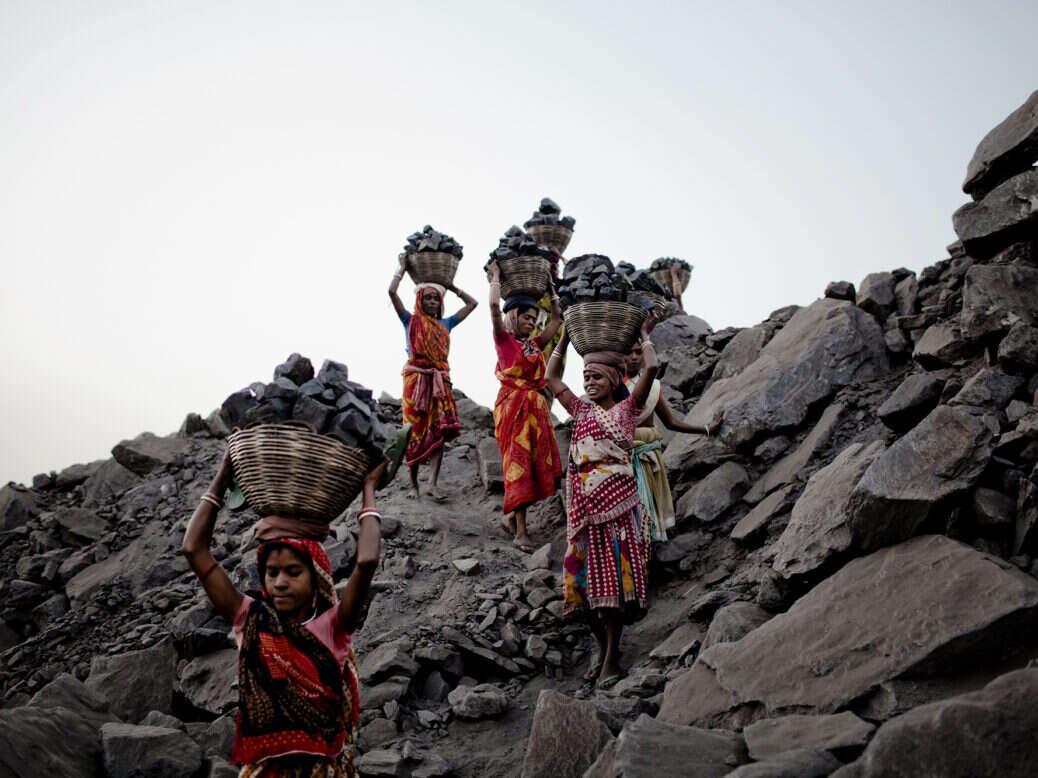
Among the standout moments during November’s Cop26 summit was India’s insistence on watering down the final agreement’s language on coal. While many countries felt let down by the revised terminology to “phase down” rather than “phase out” the fossil fuel, India’s commitment to reach net zero emissions by 2070 means that the country’s coal trajectory is nevertheless set.
“One thing is very clear. The direction that India has taken is irreversible,” says Harjeet Singh, a senior adviser at Climate Action Network, a global non-governmental organisation.
Yet, winding down an industry that powers a country which is still rapidly developing, and upon which millions of its residents depend for their livelihoods, is an immense undertaking.
“Moving 100 per cent away from coal is hugely challenging particularly in terms of providing a continuous and reliable power supply to people and industries,” says Singh. “For rich countries to put pressure on countries such as India or South Africa who continue to rely on coal, because they have already moved on, you need a lot of cooperation, solidarity, sympathy and support. But that’s not there.”
Annual per capita electricity consumption in India is only a fraction of that of the US, but poverty alleviation is an energy hungry enterprise. Despite making huge strides in raising incomes and improving living standards in the last 20 years, the strain of the pandemic means that 134 million Indians are today living below the poverty line and India’s energy consumption will increase as the country develops. Over 70 per cent of electricity in India is, however, still generated from coal.
A rapid move away from coal is desirable in a country where pollution kills 1.7 million people a year. However, progress is unlikely to be quick, even with fast-growing renewables capacity — by 2030 the country hopes to generate half of its energy needs from non-fossil fuels — given that India’s energy demands may rise to more than that of any other nation in the next 30 years.
“Coal use will go down in relative terms but in absolute terms it may still rise because of rising energy demand,” says R R Rashmi, a former Indian government climate change negotiator, now of Delhi think tank The Energy and Resources Institute.
There is also the question of what will happen to the people and states which depend on coal. Research by the non-profit organisation, National Foundation for India (NFI), estimates that more than 13 million people in India are employed in coal and related industries such as transport and power generation. Seventy per cent are employed “off-roll” or by contractors making them particularly vulnerable to any shift. And more than 260 of India’s 748 districts have some kind of connection to coal with more than half expected to be particularly impacted by the transition.
But while the impact of coal’s phase down will be felt across larger parts of the country, the brunt is likely to be borne by a handful of eastern and central coal-producing states. Foremost will be Jharkhand, Chhattisgarh and Odisha, which contain over two thirds of India's coal reserves.
For these states – which are also the country’s poorest – the move away from coal will have to be carefully managed to avoid pushing an already vulnerable population deeper into hardship. Royalties and levies linked to coal are a significant revenue stream with payments from government-owned Coal India making up 16 per cent of Jharkhand’s budget in 2019-20.
None of this is to throw into doubt the need for India to away from coal, underscores Singh. “The advantages are very, very clear. It's about air pollution, water pollution, environmental degradation and displacement wherever mining happens,” he says. But shedding dependence on a fuel that is still the leading primary energy source for a country of 1.4 billion people while alleviating poverty will require careful planning, and civil society researchers and the government are exploring options for a just transition. Critical, says Rashmi, will be understanding how to support states to diversify economically and retrain coal workers, many of whom lack skills and are illiterate.
While coal-fired power production in India has yet to peak, the length of coal transitions in places such as the UK and Germany shows that it is never too soon for communities to plan for a post-coal future, says Swati Dsouza, the former head of research at the NFI. “Fifty years is not going to be enough unless we find adequate finance,” she says. “Given the size of India's population, given the size of the labour force in the coal mining sector, both formal and informal, we are going to require each and every one of these coming 50 years”.
Significant international support will be vital, says Singh. For years, poorer countries have called for financial support from rich countries to meet their climate change goals. The $8.5bn pledged to South Africa by rich nations at Cop26 to help end its reliance on coal is, he says, encouraging.“ That's the kind of conversation we need to have and that has been missing from the climate change summit for a very long time,” says Singh.
How much will be needed for a country the size of India is not clear. One estimate suggests that meeting renewable capacity goals alone could cost $500bn to 2030 – and that was before Prime Minister Narendra Modi upped the country's 2030 installed capacity goal to 500 gigawatts (GW) from the previous target of 450 GW.
“Right now most investments are looking at what it’s going to take to scale up renewable energy within the country but we don’t yet have an estimate on what it will take to de-risk coal mining areas to make them productive again and create an economy that is not dependent on coal,” says Dsouza. “Where will India get money for that from? Because that's not a conversation anyone is having or is open to having right now.”





